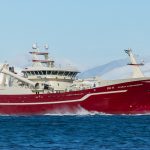Environment Waikato will proceed with drafting changes for new types of marine farming, including fish farming, in current aquaculture management areas in the Firth of Thames. The regional council has decided to gibe it nod with the policy change work without waiting for additional funding. This amends the decision in December to prepare the draft plan change, subject to financial support.
It is told that the council intended to share the costs of preparing the plan change with the government and the aquaculture industry. The government has confirmed its contribution of $70,000 through the Aquaculture Planning Fund, in addition to its previous funding of $90,000 toward the costs of information gathering and environmental impact reports.
It is said that the change follows discussions between Aquaculture New Zealand, Environment Waikato, Thames-Coromandel and Hauraki district councils to look at the opportunities for, and current barriers to, the development of growth of aquaculture in the Waikato region.
Current plan states that shellfish farming is the only type of aquaculture allowed in the region; however, kingfish farming, for example, could provide returns of more than $400,000 per hectare – more than 10 times higher than shellfish. Despite the council’s resolve to support economic development in the region, councillors remain concerned about the potential for significant environmental damage caused by fish farming, which is more intensive than shellfish farming.








